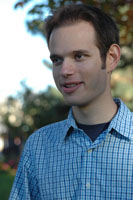Parenting Runs Risk of Unhealthy Habits
While the birth of children may seem to be an ideal time for parents to adopt or solidify healthy habits to model and pass on to their progeny, a new study indicates that the reality is just the opposite parenthood itself may present an obstacle to those healthy behaviors.
Researchers studied 1,500 young adults of differing ethnicities and socioeconomic backgrounds to measure the effect of parenthood on diet, physical activity and body mass index (BMI ). The young adults were surveyed three times over a 10-year period. Women with children had a higher BMI and consumed more sugary beverages than women without, and both fathers and mothers engaged in less physical activity than nonparents.
"If that is established and learned as a young adult parent, it's likely to continue in adulthood," said study author Jerica Berge, a clinical family researcher at the University of Minnesota.
"We need to offer support to help them out," she said, in order to teach them "they can pay attention to their health as well as all these demands of parenting."
Parents were eating more vegetables than nonparents, but that was a product of the fact that they were taking in more calories overall.
While more research is needed to confirm the findings of the study and see the long-term impact, Berge said follow-up is planned to see what effect unhealthy behaviors of parents ultimately have on the lifestyles of their children.
"Parents model for their kids what to eat and what to do," said Berge. "It's the idea that usually kids imitate, copy, parents, and it's a concern to us. It can mean negative things for their health as well as their kids."
Sign up for the Live Science daily newsletter now
Get the world’s most fascinating discoveries delivered straight to your inbox.
Children may also be affecting their parents' habits.
"Parents get so busy taking care of their kids, they don't take care of themselves as much," said Keith-Thomas Ayoob, an associate professor of pediatrics at the Albert Einstein College of Medicine in New York, who was not involved with the research. "They change their own eating habits to conform to the likes and dislikes of their kids."
And, he told MyHealthNewsDaily, "Parents are exhausted from the whole process and they don't bother to exercise, which is real unfortunate."
As the major obstacle to physical activity is time, researchers encourage parents to think differently about what constitutes exercise, replacing the gym with the playground.
"Physical activity might be being physically active with my kid at the park," Berge said.
That can also include using hikes, bike rides and simply going outside to play catch as family activities that provide exercise for both parents and children.
"One possible solution is to stop thinking of eating well and being physically active as one more add-on to put on parents and start thinking of it as part of a family lifestyle and family fun," said Ayoob. "It doesn't mean going to the gym, it means [planning] things that are physically active."
Berge said one of the hopes of the follow-up research is to design interventions that improve the health of young parents and their children.
"We've identified this high-risk time in parenthood for unhealthy habits to develop, she said, noting that this information provides the chance to "offer support so they can pay attention to their health as well as the demand of parenting."
Part of the challenge is finding a place to give parents the message. Berge said the pediatrician's office might be a place to start, but Ayoob questioned whether they were the best equipped to handle dietary habits of adults. Instead, he recommended sending families to dietitians.
Because changing habits is difficult, Ayoob noted that these lifestyle issues are important, but not urgent.
"We don't have to get there tomorrow," he said. "I like to take a one-year approach and say 'Look, where do you want to be next year at this time and what are you going to do to get there?'"
But following through is important for parents and their children.
"I never see kids eat better diets than their parents," said Ayoob. "They're role models, whether they like it or not. We need parents to understand they need to be good role models."
Pass it on: Parents are at risk for unhealthy habits, but researchers suggest families make physical activity and healthy eating part of an overall lifestyle.
Follow MyHealthNewsDaily on Twitter @MyHealth_MHND.










